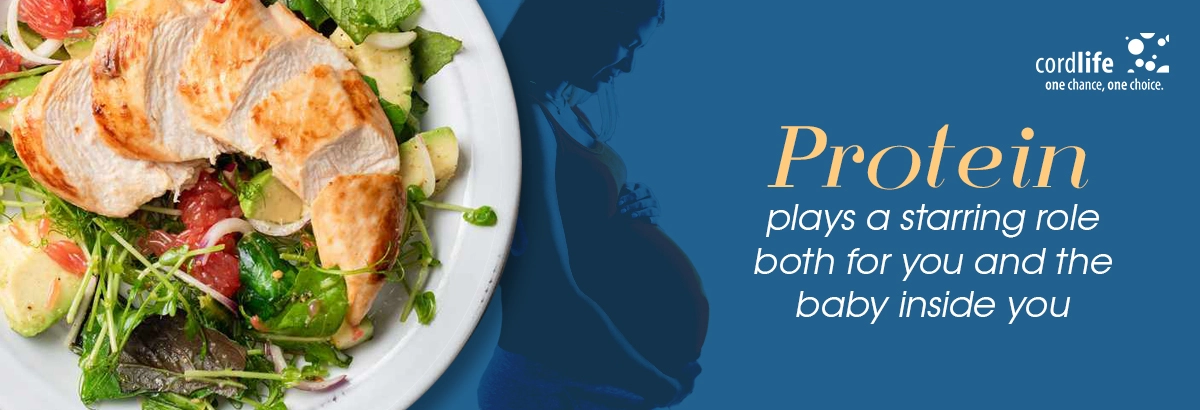Table of Contents
The moment you embrace your journey of motherhood, you undergo a lot of changes in your body and mind. After all, you’re developing another life inside you, so eating right, staying active, taking rest, and drinking plenty of water are some of the main sources of nourishment both for you and the baby inside you.
As you take in the right kind of diet during your pregnancy, you’d have to include both micro and macronutrients in your pregnancy platter. While micronutrients include vitamins and minerals, macronutrients are the best sources of energy, carbs, fats, and proteins.
Out of all the nutritional requirements, protein plays a starring role both for you and the baby inside you.
Why is Protein Playing a Crucial Role During Pregnancy?
Protein is essential for pregnant women, as there are amino acids in it that help in developing normal cell growth. The amino acids maintain your body structure – the muscles, skin as well as bones. Meeting your daily protein requirements reduces the risk of pregnancy complications such as foetal growth restriction, and giving birth before you’re due (preterm delivery). Additionally, proteins during pregnancy produce hormones and enzymes.
Remember, as you enter the second and third trimesters of your pregnancy, and the little one inside you starts developing at a faster pace, you’ll need a high-protein pregnancy diet.
How to Include Some of the Best Prenatal Protein-rich Food?
Some of the best sources of protein during pregnancy are chicken, salmon, nuts, cottage cheese, etc. But, during pregnancy, you’d have to take your healthcare practitioner’s advice to understand your daily prenatal protein requirements. As he or she wouldn’t recommend more than 71 grams per day protein requirements.
You can start your with stir-fried cottage cheese, and veggies and club them into two slices of bread.
As you proceed on with the day during your pregnancy, you can have some scrambled or boiled eggs with some fresh fruits or smoothies. The eggs do not just fulfil the pregnancy protein requirement, but they also help in adding the bone-building Vitamin D in your body, thus supporting the foetal brain development.
For your lunch, you can have rice or fried rice with just about a small bowl of yoghurt. Remember yoghurt can provide you with the optimum amount of Vitamin B12, and calcium.
You can snack in the evening with chickpeas and soybeans. Soya beans are also an excellent source of protein during pregnancy. You can add a few chunks of nuts,
You can have fish at any time of the day, even during dinner. Protein-rich fish like salmon are best for you. They are low in mercury and a good source of Omega-3 fatty acids. Some fried chicken can also do some good for you.
Is Protein Powder Safe During Pregnancy?
After the above-mentioned pregnancy protein-rich food, if you find something is lacking, you’d have to include protein powder as your supplement. Doesn’t that sound like a simple and easy fix?
However, protein powders or protein shakes often contain a concentrated form of protein. Try to remember excessive can be detrimental during your pregnancy. All you need to do is look for a happy medium. Before you find a happy medium, get your protein powder tested by your healthcare practitioner.
Overall, protein plays a crucial role in providing the necessary energy and nourishment for both you and your baby during pregnancy. Your body is working tirelessly to support the growth and development of your little one, and protein can help you meet those demands while also supporting your health and well-being.
